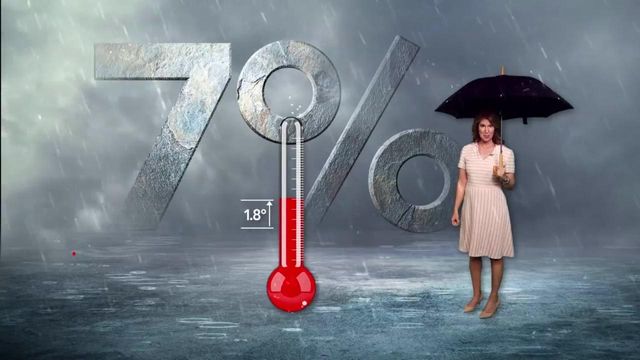Warming ocean temperatures cause for Ian's rapid intensification
Warming ocean temperatures are fueling tropical systems, causing them to intensify quickly and become more unpredictable.
Out of the 56 tropical cyclones that caused more than $1 billion in damage in the U.S. from 1980 to 2021, more than 70% underwent "rapid intensification," according to Climate Central.
That means the storm's wind speeds increased by at least 35 mph in a 24 hour period.

Since the early 2000s, meteorologists have seen an increase in tropical systems gaining energy at a fast rate. From 2005 to 2020, the U.S. has seen three Category 4 hurricanes have wind speeds strengthen by 57 miles per hour or more in a 24-hour period.
Hurricane Ian was added to that list this past weekend, when it made landfall three times, hitting Cuba as a Category 3 storm, then quickly strengthening into a Category 4 storm before making landfall in Florida. It struck land a third time in South Carolina as a Category 1 storm.
On Sept. 26, Ian had winds at 75 mph. By the next day, winds were 125 mph, and on Wednesday, Ian's winds had grown to 155 mph.

In 2005, Hurricane Katrina intensified by more than 57 mph during a 24-period. Hurricanes Harvey, Maria, Sandy and Ida also saw similar rapid intensification periods, with Maria developing the fastest.
No major hurricanes were recorded intensifying that quickly prior to 2005, Climate Central’s data analysis shows.

According to the U.S. Global Change Research Program, the world's oceans have absorbed about 93% of excess heat caused by greenhouse gas emissions since the mid-20th century. Warming temperatures, especially sea surface temperatures, give tropical systems the perfect fuel for rapid intensification.
Since 1980, tropical storms and hurricanes have cost North Carolina more than $25 billion in damage, according to Climate Central.












